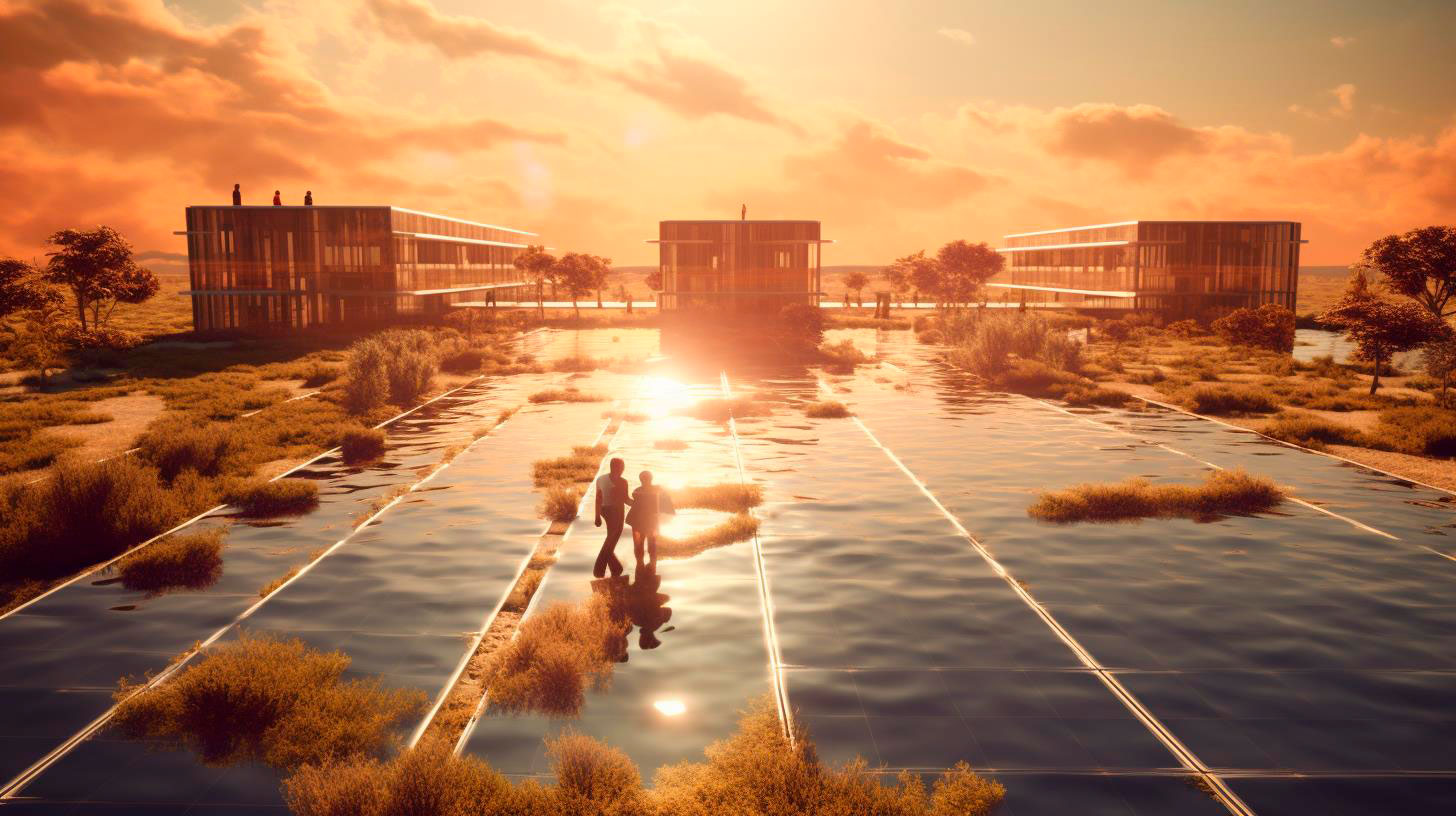Solar-Powered Fisheries: Sustainable Fish Farming Practices
This article explores the benefits and practices of utilizing solar power in fish farming and highlights the efforts made to create sustainable fisheries.
The Importance of Sustainable Fish Farming
Fish farming, also known as aquaculture, plays a vital role in meeting the growing global demand for seafood. According to the Food and Agriculture Organization (FAO), nearly 50% of the world’s fish for human consumption comes from aquaculture. However, traditional fish farming practices often have negative environmental impacts, including high energy consumption, habitat destruction, and water pollution.
Implementing sustainable fish farming practices is crucial to minimize these impacts and ensure the long-term availability of seafood. Solar power has emerged as a promising solution to make fisheries more sustainable and efficient.
The Advantages of Solar-Powered Fisheries
Solar power offers several advantages when it comes to fish farming practices:
- Reduced Carbon Footprint: Solar-powered fisheries significantly reduce greenhouse gas emissions compared to conventional fishing methods. The use of renewable energy sources like solar power helps combat climate change and promotes a cleaner environment.
- Energy Independence: Solar-powered fish farms can operate independently of the grid, reducing dependence on non-renewable energy sources. This makes them more resilient to power outages and increases their overall efficiency.
- Cost Savings: Installing solar panels on fish farms can lead to substantial long-term cost savings. Once the initial investment is recovered, the operation costs of the fish farm decrease significantly, as solar energy is free and abundant.
- Healthy Ecosystems: Solar-powered fisheries often employ sustainable aquaculture techniques that promote water conservation, minimize waste discharge, and protect natural habitats. This leads to healthier aquatic ecosystems and preserves biodiversity.
Solar-Powered Fisheries in Action
Around the world, solar power is being harnessed to make fish farming more sustainable. Let’s take a look at a few notable examples:
Bangladesh’s Solar-Powered Hatcheries
In Bangladesh, solar-powered fish hatcheries have emerged as a sustainable solution to support the country’s rapidly growing aquaculture industry. These hatcheries utilize solar energy to power pumps, aerators, and other equipment necessary for fish breeding. The use of solar power not only reduces costs but also decreases reliance on fossil fuels, leading to a greener and more sustainable fish farming industry.
California’s Solar Aquaculture
California, known for its advancements in renewable energy, has embraced solar power in fish farming. Solar panels are installed on aquaculture facilities to generate clean energy for water aeration, temperature control, and lighting. The adoption of solar power in California’s fisheries helps reduce their environmental impact while maintaining high-quality and sustainable seafood production.
Norway’s Floating Solar Farms
Norway, a country with a rich fishing heritage, has taken a step further towards sustainable fish farming by implementing floating solar farms in its seas. These solar farms not only generate renewable energy for fish farms but also serve as shelter for fish and other marine organisms. The combination of solar power and aquaculture creates an innovative and eco-friendly approach to sustainable fish farming.
Key Takeaways
Solar-powered fisheries offer a sustainable and environmentally friendly solution to meet the increasing global demand for fish. Here are the key takeaways:
- Solar power reduces the carbon footprint and energy consumption of fish farming.
- Sustainable aquaculture practices help preserve ecosystems and promote biodiversity.
- Solar-powered fisheries are energy-independent, cost-effective, and resilient.
By adopting solar power and sustainable fish farming practices, we can ensure a healthier planet and a more sustainable future for the fishing industry.
Sources:
